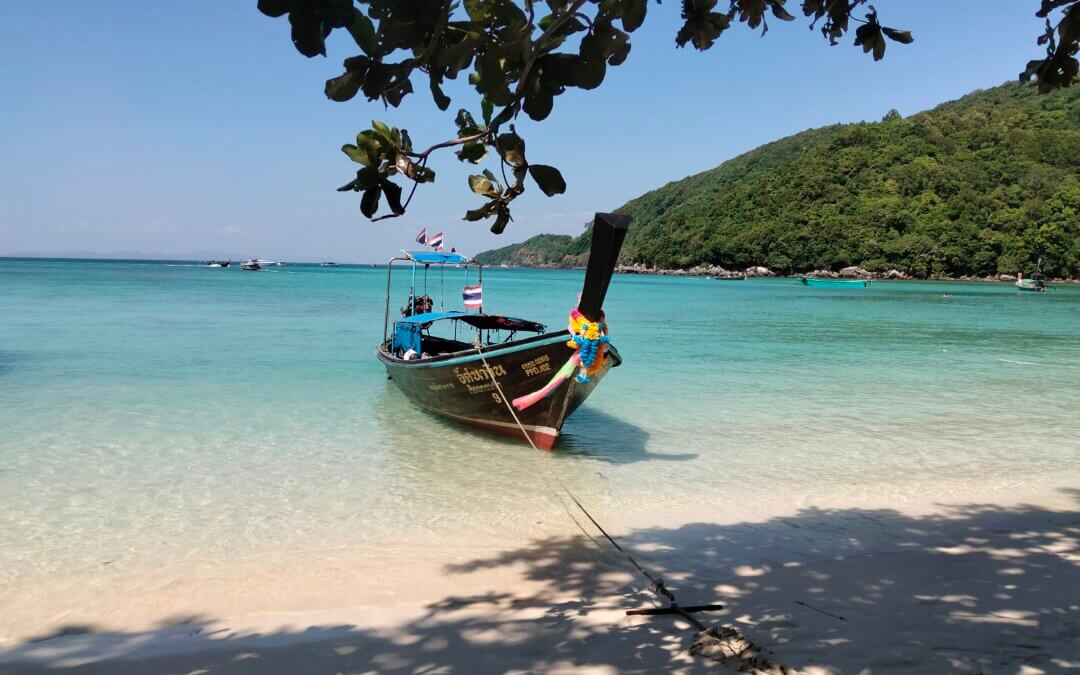Thailand has legalised the cultivation and use of cannabis after decades of harsh anti-drug policies, which punished drug offences with long prison sentences or even the death penalty.
The new law, passed in June 2022, limits the use of the plant for medical and therapeutic use, but continues to prohibit recreational use. The law maintains the prohibition of cannabis if it exceeds 0.2% THC.
The decriminalisation of marijuana is expected to be a boost to the country’s economy.
But why has this step been taken?
- To have another source of income other than tourism: the economic crisis caused by the covid pandemic has had a great impact on tourism, one of the main sources of income in Thailand. Thus, the government hopes that the cannabis trade will boost the local economy, but also the so-called cannabis tourism: people will travel to Thailand specifically to receive therapies and treatments with marijuana extracts.
 THC shop in Krabi, Thailand.
THC shop in Krabi, Thailand.
- To relieve pressure on the prison system: Thailand has some of the most overcrowded prisons in the world; most of the inmates are there for drug offences and many of them are juveniles. This provoked international criticism of the poor conditions in which prisoners live and pushed the Thai government to look for another strategy to combat drug trafficking.
- As a political strategy: the military has controlled Thai politics for many years and has also imposed its ideology with numerous coups d’état. In that sense, the previous anti-drug legislation was influenced by a very strict view of society imposed by the military. During the 2019 election campaign, Bhumjaithai Party leader Anutin Charnvirakul advocated marijuana legalisation as one of the strong points of his programme.
The proposal was very appealing to the rural population of northern Thailand: most of them are farmers struggling to make a living from rice and sugar cultivation and in need of a new, more commercial crop.
Can cannabis be used in Thailand?
Yes, under the new law, anyone over the age of 20 can possess and consume cannabis, but with some rules.
It is legal for cafes and restaurants to serve cannabis-infused products. That is, as long as the cannabis extract in the products contains less than 0.2% THC. THC, or tetrahydrocannabinol, is the main psychoactive compound that makes cannabis high. Extracts containing more than 0.2% THC remain illegal.Cannabidiol (CBD), on the other hand, is less controlled. CBD is the chemical in cannabis that does not get you high.
Cannabis shops in Thailand
At Bluecanoby, we are interested in this market, so we went to Thailand to find out how the cannabis sector is progressing. Surprisingly, we realised that throughout the country there are a variety of cannabis shops, and products derived from it, totally free for consumption by anyone who wants to legally consume it.
Stay tuned as we will soon give you more details about the project, you can also follow our latest news on our Instagram: @bluecanoby
